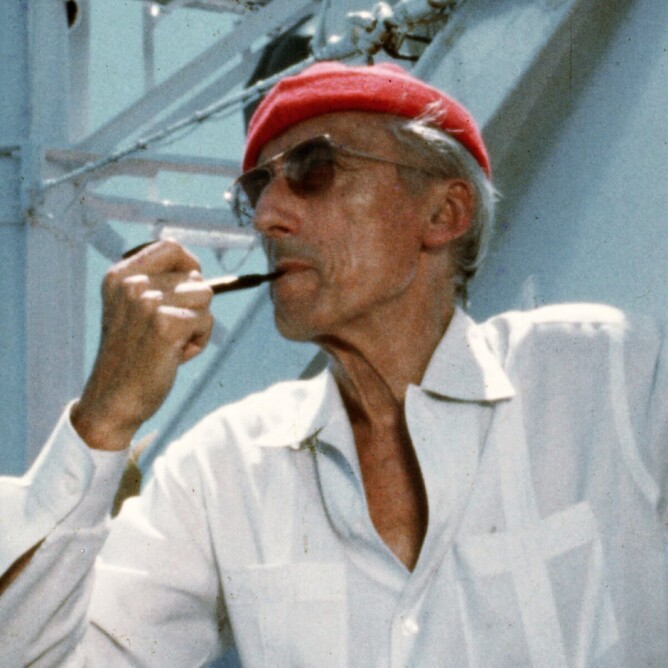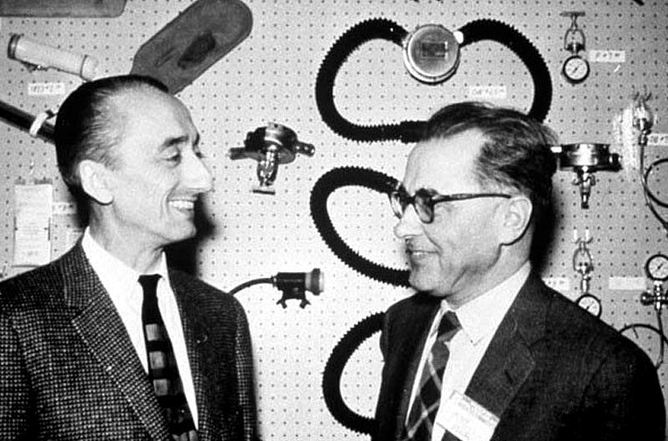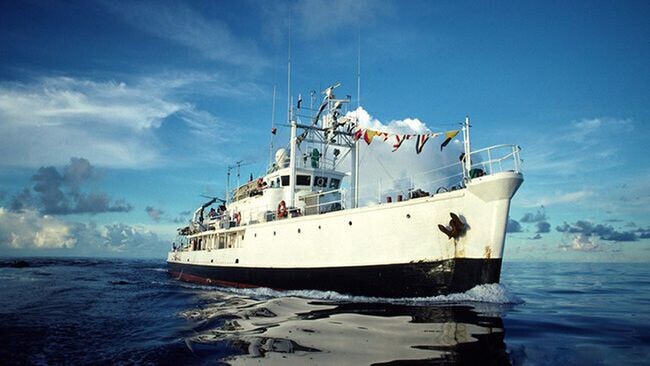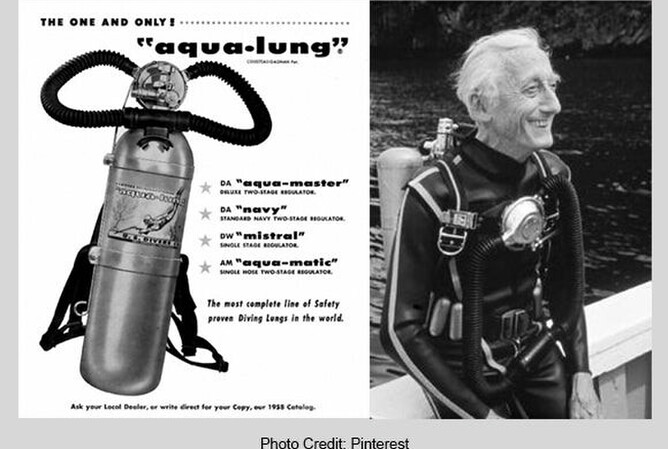The Legacy of Jacques Cousteau
Jacques-Yves Cousteau, a name synonymous with ocean exploration and conservation, was born on June 11, 1910, in Saint-André-de-Cubzac, France. His life's journey would take him from the quiet banks of the Gironde River to the depths of the world's oceans, leaving an indelible mark on both the underwater world and the environmental movement.
From a young age, Cousteau exhibited a profound fascination with the sea. He learned to swim before he could walk and developed a deep connection to the water that would shape the rest of his life. After studying at the Collège Stanislas in Paris, he pursued a career in the French Navy, which allowed him to explore the oceans and sharpen his diving skills.
It was during his naval service that Cousteau met Émile Gagnan, a French engineer who had developed the Aqua-Lung, a revolutionary underwater breathing apparatus. This invention opened up a whole new world to Cousteau and marked the beginning of his lifelong exploration of the oceans. He and Gagnan collaborated to improve and popularize the Aqua-Lung, making underwater exploration accessible to a wider audience.
Jacques Cousteau and Emile Gagnan
In 1950, Cousteau co-authored "The Silent World" with Frédéric Dumas, an autobiography that documented his adventures and discoveries. The book became an international bestseller and was later adapted into a documentary film, which won the Palme d'Or at the 1956 Cannes Film Festival. This success propelled Cousteau to fame and made him a household name worldwide.
Cousteau's contributions to marine science extended far beyond his writings and films. He co-founded the French Oceanographic Campaigns in 1951 and embarked on numerous expeditions aboard the iconic research vessel, Calypso. These missions allowed him to explore the depths of the oceans and uncover their mysteries, from the vibrant coral reefs of the Red Sea to the hauntingly beautiful shipwrecks of the Mediterranean.
The Calypso - A Floating Laboratory
The Calypso was not just a ship; it was a floating laboratory, a home away from home for Cousteau and his crew. The vessel was equipped with cutting-edge technology for its time, including diving saucers, underwater cameras, and a specialized diving bell. These innovations allowed Cousteau and his team to explore the ocean's depths like never before, capturing breathtaking footage and conducting groundbreaking research.
One of the Calypso's most significant contributions to marine science was its role in popularizing scuba diving. Cousteau's invention of the Aqua-Lung, a pioneering underwater breathing apparatus, allowed divers to stay submerged for extended periods, making it possible to explore previously inaccessible regions of the ocean. This breakthrough revolutionized marine biology and opened up a whole new world of discovery.
Sadly, the Calypso faced several setbacks during its storied career, including a collision in 1996 that severely damaged the ship. After years of restoration efforts, it was finally relaunched in 2020, a testament to the enduring legacy of Cousteau's work.
Jacques Cousteau's Calypso was more than just a ship; it was a symbol of human curiosity and our innate desire to explore the unknown. It allowed us to witness the majesty of coral reefs, the haunting beauty of shipwrecks, and the astonishing diversity of marine life. It also served as a powerful reminder of the fragility of our oceans and the urgent need for their protection.
Today, as we continue to grapple with the consequences of climate change and habitat destruction, the lessons learned from Cousteau's expeditions on the Calypso are more relevant than ever. They remind us of the importance of preserving our oceans and the incredible biodiversity they contain.
The Aqua Lung
One of Cousteau's most significant discoveries was the underwater village of Conshelf, a series of experimental underwater habitats designed to explore the possibilities of living beneath the sea. These experiments laid the groundwork for future underwater research and showcased the potential for human habitation beneath the waves.
In addition to his exploration endeavors, Cousteau was a tireless advocate for marine conservation. He believed that the oceans were a finite resource that required protection and preservation. His passion for the sea and his charismatic personality made him a powerful voice for environmental awareness. He founded the Cousteau Society in 1973, an organization dedicated to marine conservation and research, which continues its work to this day.
Jacques Cousteau's legacy extends beyond his lifetime. His pioneering work in marine exploration and conservation has inspired generations of scientists, divers, and environmentalists. His documentaries and books have educated the public about the beauty and fragility of the oceans, leading to increased efforts to protect them.
On June 25, 1997, Jacques Cousteau passed away in Paris, leaving behind a legacy that continues to influence our understanding of the oceans and our responsibility to protect them. His life was a testament to the power of curiosity, passion, and determination in the pursuit of knowledge and the preservation of our planet's most precious resources.
Jacques-Yves Cousteau's life was a remarkable journey of exploration, discovery, and conservation. His pioneering spirit, combined with his love for the sea, transformed our understanding of the oceans and inspired a global movement to protect them. His legacy serves as a reminder that each of us has a role to play in preserving the wonders of the underwater world for future generations.
Want to learn more about how you can protect our oceans and lakes? Afterall we‘re all responsible for protecting our aquatic resources. Why not sign up for our free SSI Blue Oceans program, SSI explains the importance of protecting the ocean, and how anyone can quickly support this effort in their daily lives.





